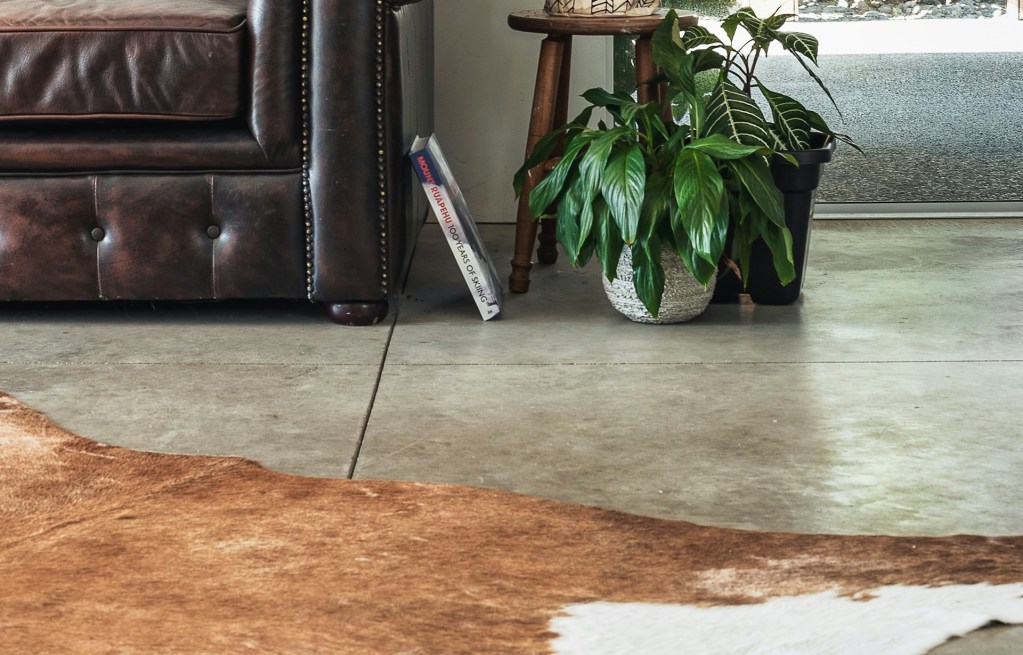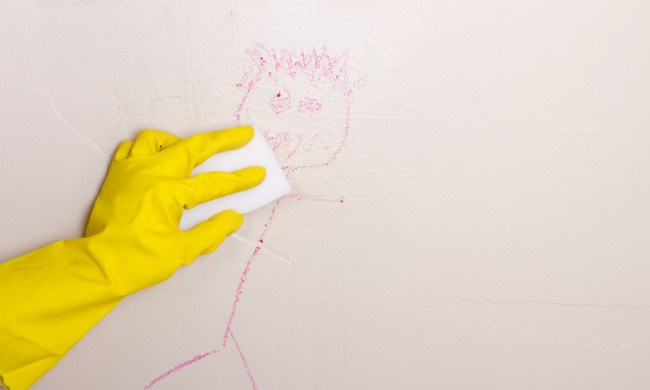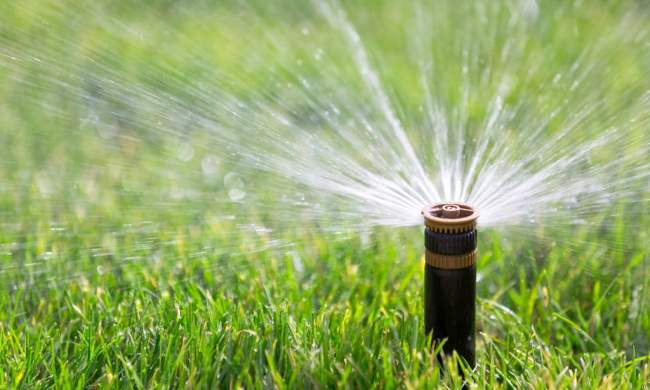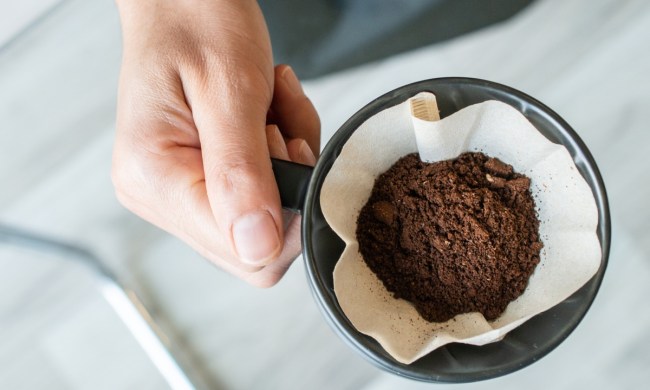
Looking for a chic and simple flooring solution? Polished concrete floors have emerged as a trendy and practical floor material for modern spaces. With their smooth, glossy finish and industrial charm, they offer a unique aesthetic appeal that’s hard to match. But beyond their appearance, polished concrete floors boast several advantages that make them a compelling choice for residential and commercial properties.
Let’s dive into the pros and cons of polished concrete floors so you can decide if this flooring material is right for your space
Pros of polished concrete floors
These are some amazing pros and good reasons to polish the concrete floors in your home.

Highly durable
One of the most significant advantages of polished concrete floors is their exceptional durability. Once properly installed and polished, concrete floors can withstand heavy foot traffic, making them an ideal flooring material for high-traffic areas, such as basements, garages, bathrooms, and even kitchens. Their resistance to scratches, stains, and abrasions ensures that they maintain their pristine appearance even in the most demanding environments.
Long lifespan
Polished concrete floors have an impressively long lifespan compared to many other flooring options. With regular maintenance and occasional resealing, they can last for decades without needing replacement. This longevity not only reduces long-term maintenance costs but also minimizes environmental impact by reducing the need for frequent renovations and material replacements.
Economical
In terms of cost-effectiveness, polished concrete floors are hard to beat. Unlike traditional flooring materials like hardwood or tile, which often require expensive installation and ongoing maintenance, concrete is relatively affordable and readily available. Additionally, its long lifespan means that you’ll save money on replacement and repair costs over time, making it a wise investment for budget-conscious homeowners and business owners alike.
Lots of design options
Contrary to popular belief, polished concrete floors offer a wide range of design possibilities beyond the typical gray slab. Through the use of decorative aggregates, dyes, stains, and scoring techniques, concrete can be customized to achieve various colors, patterns, and textures to suit any design aesthetic. Whether you prefer a minimalist, contemporary look or a more rustic, industrial-type vibe, polished concrete can be tailored to meet your specific design preferences.
Low maintenance
Possibly the most appealing aspect of polished concrete floors is their low-maintenance nature. Unlike carpet, hardwood, or tile, which require regular cleaning and upkeep to maintain their appearance, concrete floors can be easily cleaned with a mop and mild detergent. Additionally, their seamless surface prevents the accumulation of dust, dirt, and allergens, making them an excellent choice for those with allergies or respiratory issues.
Water and slip resistant when sealed properly
Although concrete is inherently porous, polished concrete floors can be sealed to create a water and slip-resistant surface. This makes them suitable for areas prone to spills or moisture, such as kitchens, bathrooms, and outdoor patios. Proper sealing also enhances the floor’s durability and longevity by protecting it from stains, scratches, and damage caused by water infiltration.
What are the disadvantages of polished concrete floors?
Now, let’s look at the cons of polishing your concrete floors.

Super-hard surface
One of the main complaints about polished concrete floors is their super-hard surface, which can be uncomfortable to walk or stand on for extended periods. Unlike carpet or hardwood, which offer some degree of cushioning and warmth, concrete lacks elasticity and can feel unforgiving underfoot. This can be mitigated by using area rugs on the surface in areas where you frequently stand — like the kitchen.
Cold to the touch
Another downside of polished concrete floors is their tendency to retain and transmit cold temperatures, especially in colder climates. While this can be beneficial during hot summer months, it can make the floor uncomfortable to walk on barefoot in winter. To address this issue, consider using rugs or investing in underfloor heating systems to provide warmth and comfort.
Can be noisy
Polished concrete floors have a reputation for amplifying sound due to their reflective surface and lack of acoustic absorption. This can result in increased noise levels, particularly in open-plan spaces or areas with high ceilings. To minimize noise transmission, consider incorporating sound-absorbing materials, such as drapes, rugs, or acoustic panels, into your design.
Water can damage it if not sealed properly
Although sealed polished concrete floors are resistant to water and moisture, they can still be susceptible to damage if not properly maintained. Over time, water infiltration can cause the concrete to crack, stain, or deteriorate, compromising its integrity and appearance. To prevent water damage, ensure that your polished concrete floor is regularly inspected, maintained, and resealed as needed.
Not a very DIY-friendly project
While some home improvement projects can be tackled by DIY enthusiasts, polishing concrete floors is best left to the professionals. The process involves specialized equipment, materials, and techniques that require skill and experience to achieve optimal results. Attempting to polish concrete floors without the necessary expertise can result in uneven finishes, surface imperfections, and costly mistakes.
How to care for polished concrete floors

Maintaining polished concrete floors is relatively simple and straightforward. Here are some tips to help you care for your new floors:
- Regularly sweep or vacuum to remove dust and debris.
- Clean spills promptly with a neutral pH cleaner and water.
- Mop the floor with a mild detergent or concrete cleaner as needed.
- Avoid using harsh chemicals or abrasive cleaners that can damage the surface.
- Periodically reseal the floor to maintain its shine and protect against stains and moisture.
By following these maintenance practices, you can ensure that your polished concrete floors remain in top condition for years to come.
As you can see, polished concrete floors offer a range of benefits, but they also have some drawbacks. Ultimately, whether polished concrete floors are the right choice for your space depends on your specific needs, preferences, and budget. By weighing the pros and cons we’ve discussed here, you can make an informed decision that suits your lifestyle and design aesthetic.



